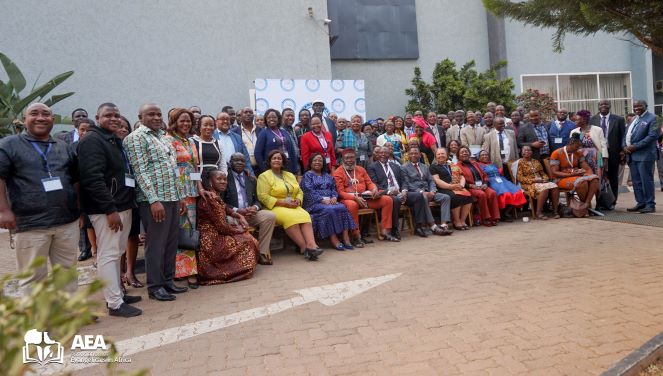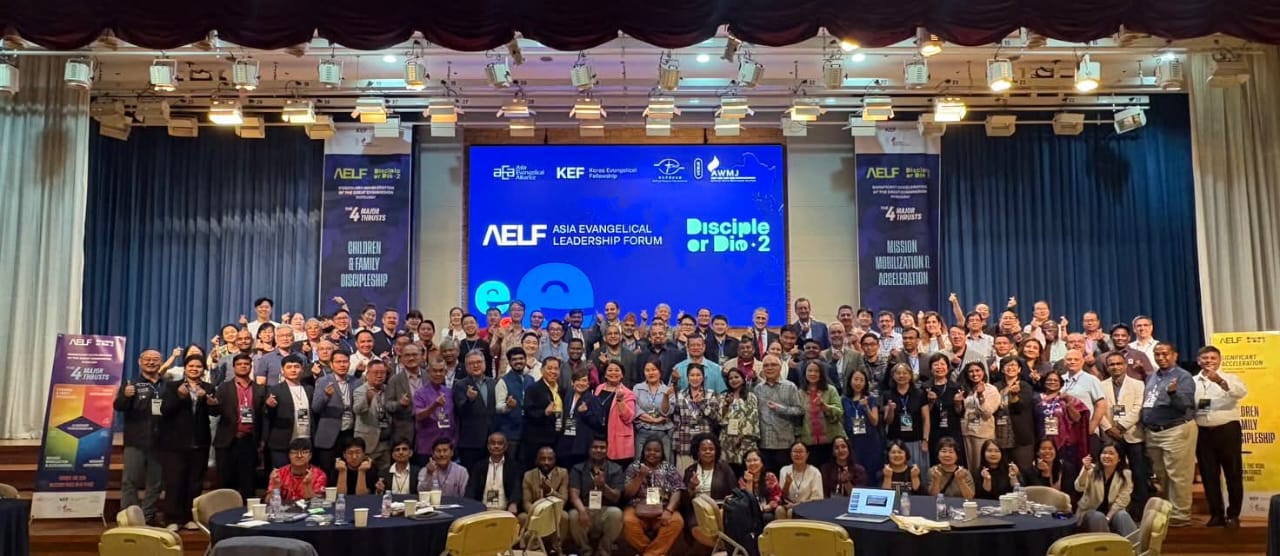
Evangelical leaders from 29 African countries came together in Gaborone, Botswana on August 24–26 for a summit meeting titled “The Africa God Wants.” The Association of Evangelicals in Africa (AEA) hosted this ambitious event, aimed at establishing a programmatic agenda for the transformation of the continent.
The summit began with an inspiring official opening ceremony featuring Hon. Philda Nani Kereng, the host country’s Minister of Environment and Tourism and a Christian believer. Her commitment echoed the exceptional support provided by the government of Botswana, under the leadership of H.E. Mokgweetsi Eric Keabetswe Masisi, which facilitated the conference and ensured entry for all the delegates.
Goodwill Shana, AEA president, addressed pressing issues confronting the church and the continent’s current realities. AEA Secretary General Master Oboletswe Matlhaope’s opening address emphasized unity, a purposeful transformation agenda, creating of sense of community, practical discipleship and holistic mission across the continent.
Patrick Sookhdeo, known for his extensive work with organizations such as Barnabas Aid, the Oxford Centre for Religion and Public Life, and the Westminster Institute, provided delegates with a practical framework for the agendas each national evangelical alliance pledged to undertake. Central to the discussions was the theme of “Building Unity in Times of Need,” presented by Africa Service, with a sobering recognition that the church faces fierce challenges and curtailed freedoms, often with limited support from governments and the media.
Pearl Kupe, founding international president of the Global Forum of Women Entrepreneurs, offered insights on overcoming the root causes of challenges faced by female entrepreneurs.
Three WEA leaders presented messages: Dirk Gerleach of the WEA Crisis Response Centre, Wissam al-Saliby of the WEA Geneva office (on “Advocacy for Self and Society”), and Esme Bowers, director of church engagement. Rev. Bowers also orchestrated meetings to strengthen the AEA Women’s Commission and foster sustainable partnerships among church leaders. AEA’s own project, the Association for Christian Theological Education in Africa (ACTEA), directed by David Tarus, provided valuable insights into a transformative theological training curriculum.
Commenting on the conference, Bowers said, “The opportunity to dialogue and discern together as African evangelical leaders and foster support to strengthen struggling national alliances working in war-torn countries saw new partnerships established. The richness of the fellowship and appreciation for each participant’s contribution created a unity which will bode well for the future of the evangelical church in Africa, as they continue to engage in transformation and building healthy churches.”
Bowers expressed special admiration for a delegate from Sudan who spent a week traveling to Botswana for the summit, under very difficult circumstances and at great cost.
The summit closed with the gracious presence of Hon. Anna Mokgethi, Minister of Labour and Home Affairs. Her participation as the minister responsible for immigration in Botswana, marked a fitting conclusion to a summit driven by faith and commitment.
During the summit, the AEA released a statement calling for peace, negotiation, mutual respect, and protection of human lives in four countries facing political challenges: Niger, Mali, Burkina Faso and Gabon. The AEA offered to play a supportive role in mediation and reconciliation toward a lasting peace.
In addition, the participants adopted a “Gaborone Declaration” expressing the AEA’s commitment and priorities in 10 areas: reaching the unreached; discipleship; theological education; transformation leadership and technology; freedom of religion and solidarity with persecuted Christians; socioeconomic development; advocacy and social justice; peacemaking and peacebuilding; youth as a mission field and mission force; and women’s empowerment.
The evangelical leaders attending the summit dispersed to their respective nations with new hope and direction for catalyzing unity on the continent, producing positive change, and creating a conducive environment for their posterity. They will seek to establish the Africa God wants—one where guns are silent, conflicts are resolved through dialogue, and African resources are harnessed and used for the benefit of all.




Stay Connected